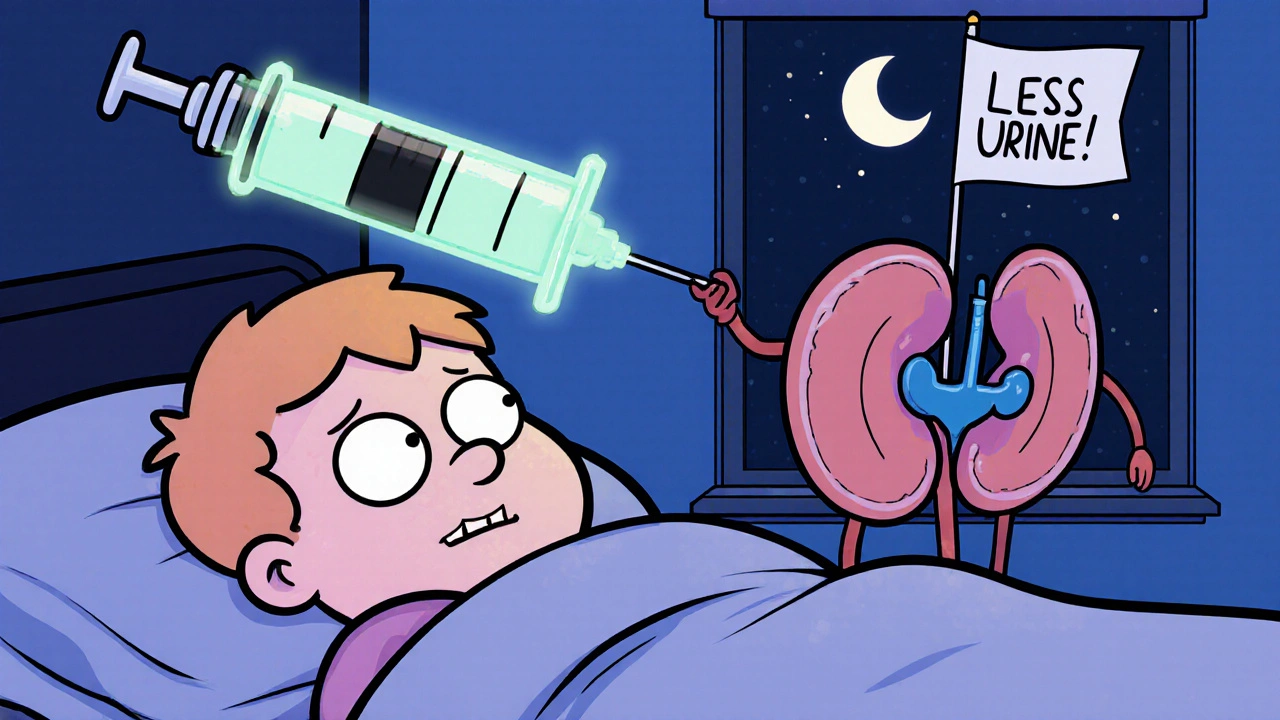Desmopressin injection helps control excessive urination and bleeding by mimicking a natural hormone. Used for diabetes insipidus, bedwetting, and bleeding disorders, it requires careful dosing and fluid restriction to avoid dangerous side effects like low sodium.
Desmopressin Precautions: What You Need to Know Before Taking It
When you're prescribed desmopressin, a synthetic version of the hormone vasopressin used to control urine production. It's often called by its brand name DDAVP, and it helps with bedwetting, diabetes insipidus, and certain bleeding disorders. But this isn't a harmless pill—it can cause serious problems if you don't follow the rules. The biggest risk? Low sodium in your blood, a condition called hyponatremia. It doesn't happen often, but when it does, it can lead to confusion, seizures, or even coma. That’s why knowing the desmopressin precautions isn't optional—it's life-saving.
Who needs to be extra careful? People with kidney problems, heart failure, or those taking diuretics like hydrochlorothiazide. If you're older, your body handles fluids differently, so your doctor will likely lower your dose. And if you're sick with a fever, vomiting, or diarrhea, you should stop taking it—your body can't handle extra water. Also, don't drink more than you normally would. Many people think drinking lots of water helps, but with desmopressin, it's the opposite. Too much fluid = dangerous drop in sodium. Stick to your usual intake, unless your doctor says otherwise.
It also plays nice with some meds and fights others. Antidepressants like SSRIs, NSAIDs like ibuprofen, and certain antipsychotics can increase the risk of low sodium. If you're on any of these, your doctor should monitor your blood levels. And if you're using it for bedwetting in kids, don't give it after dinner unless you're sure they won't drink anything before bed. For nose spray users, make sure you're using the right device—wrong technique means wrong dose.
There's more to this than just taking a pill. Desmopressin works by telling your kidneys to hold onto water. That's great if you're losing too much urine. But if your body already holds too much fluid, or if you're sweating a lot, or if you're drinking sports drinks or alcohol, you're stacking the deck against yourself. That’s why timing, diet, and other meds matter just as much as the dose.
You'll find posts below that dig into real-world cases—how people handled side effects, what went wrong when they ignored warnings, and how to spot trouble before it turns serious. Some talk about interactions with other drugs you might be taking. Others explain how doctors test for sodium levels before and after treatment. None of them sugarcoat it. This isn't about fear—it's about smart use. If you're on desmopressin, these are the stories you need to read.

